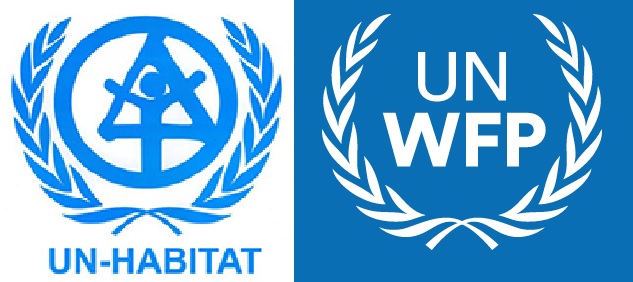COVID-19 Critically Affects Urban Areas, Informal Sectors in Eastern Africa - ENA English
COVID-19 Critically Affects Urban Areas, Informal Sectors in Eastern Africa

Addis Ababa August 6/2020 (ENA) In cities and urban areas in East Africa, livelihoods and incomes of populations are seriously affected by the COVID-19 pandemic, particularly for those living in informal settlements, UN agencies disclosed.
The World Food Programme (WFP) and United Nations Human Settlements (UN-Habitat) said in their joint report launched on Wednesday that the number of food insecure people in East Africa will increase to more than 41 million because of COVID-19 of which 14 million are urban dwellers.
Similarly, with the loss of income and the rise in food prices, poor households are increasingly unable to afford a nutritious diet, and this could likely results in a considerable deterioration of the nutrition situation of the populations.
"The urban populations in East Africa are highly vulnerable to the COVID-19 pandemic, particularly 35 million people, or 58 percent of the urban populations living in informal settlements who are at high risk from its impact", the agencies stated.
According to the UN agencies, following rapid urbanization in East African countries, formal employment has not kept pace with the rapidly rising urban population, leaving many urban dwellers to earn their livelihoods from a variety of alternative informal opportunities.
"People living in urban slums are more prevalent in South Sudan, Somalia, Djibouti and Ethiopia where at least three-fifths of the urban population live in slums or informal settlements (about 9 out of 10 urban residents in South Sudan)."
The nine countries of East Africa are far from universal access to basic services in urban areas, especially for sanitation and hand washing facilities, which put their residents at risk of infection by COVID-19, they added.
The agencies have called on national and local governments to step up efforts in terms of direct investments to provide these services, as well as setting up workable policies and actions that both respond to the pandemic and also support sustainable urbanization where no one and no place is left behind.
UN-Habitat and WFP, together with other partners, will continue to monitor the situation by continuing to work on urban situation monitoring, livelihood and food security monitoring, market price monitoring and the social protection learning facility to draw lessons from emerging social protection measures to address the situation.
At 53,000 confirmed cases and 821 deaths as of 1 August, the region is at a relatively modest level compared to other regions in the world, though the number of new cases is increasing more rapidly than before, the report indicated.